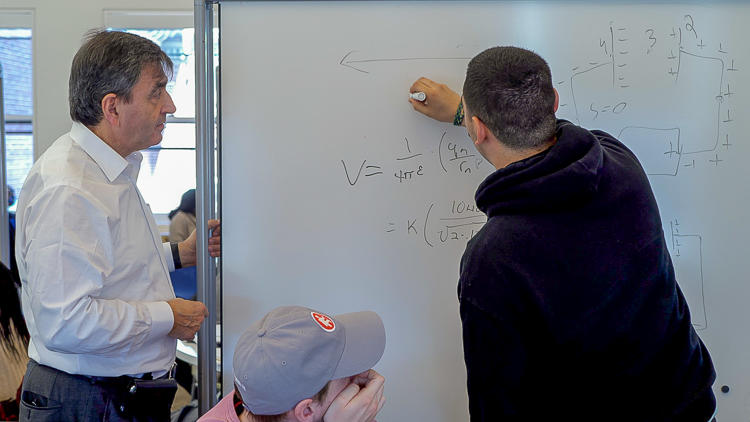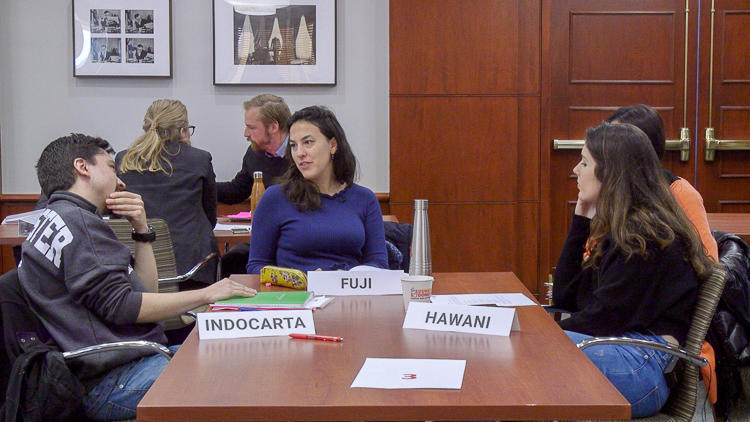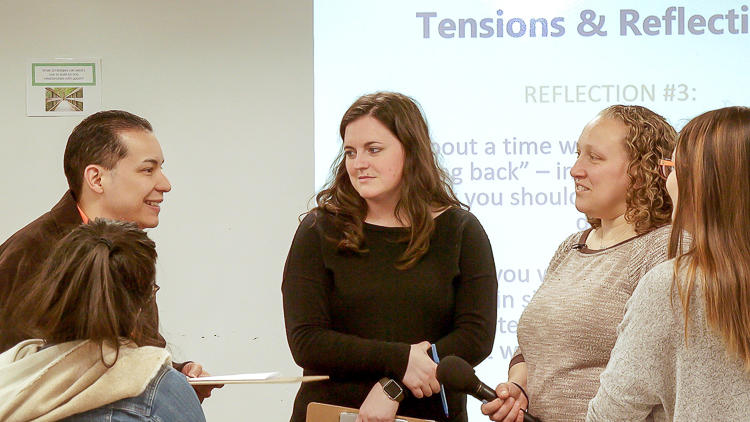Many students balk at the idea of working in teams, particularly when they don’t know who the other students are. Students may be concerned others won’t pull their weight or that the output may not meet expectations. Given this, it is important for instructors to be intentional in fostering team-building experiences and peer-accountability processes. Doing so, instructors can ensure that teams get off on the right foot and persist productively throughout the class. In this video, Eric Mazur and his teaching team give examples of how they do this by discussing the use of reflection, team contracts, and peer feedback in their class.
Using Team Contracts and Peer Feedback to Foster Team Building
Instructor
Eric Mazur, Balkanski Professor of Physics and Applied Physics
Student Group
Undergraduate
School
School of Engineering and Applied Sciences
Course
AP50 Physics as a Foundation for Science and Engineering
Group Size
60 students
- Remember that there’s a difference between simply putting students into teams and helping students learn how to work in teams. Aim to scaffold team-based learning experiences so that students can develop the skills to support each other in their learning.
- Be intentional about creating conditions for students to get to know each other. Think beyond simple “icebreaker” games as introduction activities; and facilitate intentional discussions about team norms and expectations. Help students do this by having them reflect on their previous team experiences with conflict and workflow management.
- When designing the peer-assessment process, consider the advantages and disadvantages of asking students for anonymous or identifiable feedback. If feedback is provided anonymously it may be more honest; however, if there are serious concerns then it may be difficult to follow up.
- A sense of autonomy is a key factor in fostering intrinsic student motivation (Deci & Ryan, 2000). This suggests that opportunities allowing students greater ownership in the classroom context, like developing and agreeing on the parameters of their team contracts, can be one way to promote intrinsic motivation.
- According to Siciliano, individual accountability, social skills, and group processing are key principles in cooperative learning. Peer evaluations can be one way to provide student feedback about their performance in the context of a group (2001).
- The University of New South Wales offers a number of tips for helping students establish their own ground rules.
- Emerging online platforms, such as CATME, provide tools for instructors to gather peer feedback and deliver this feedback to students.




